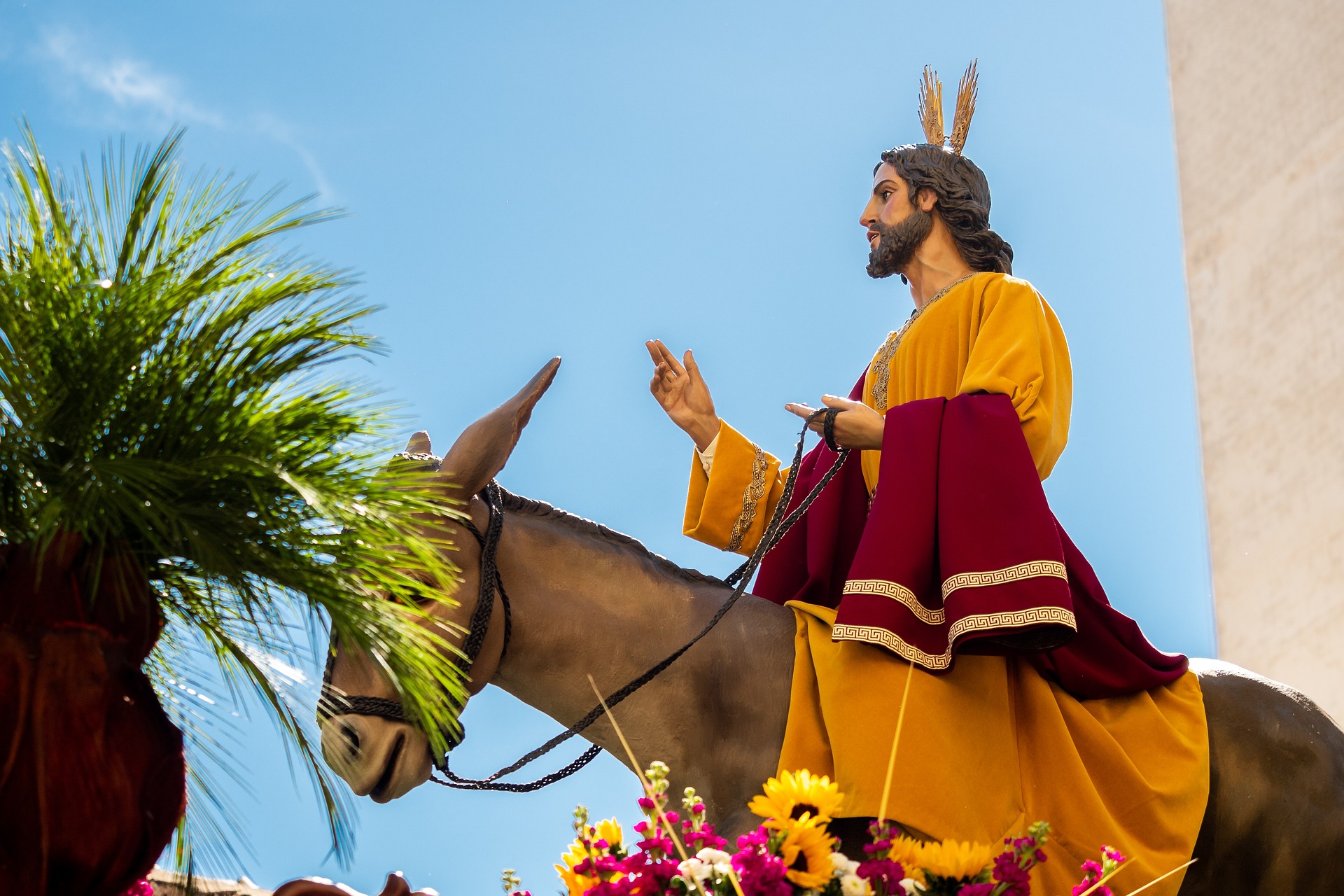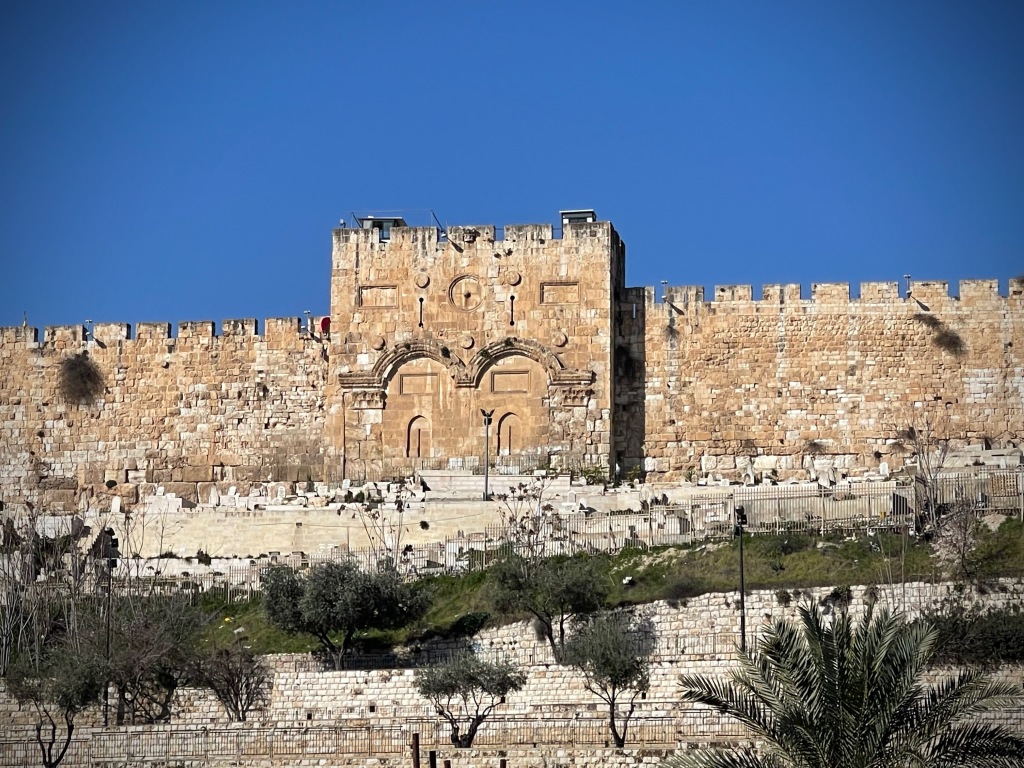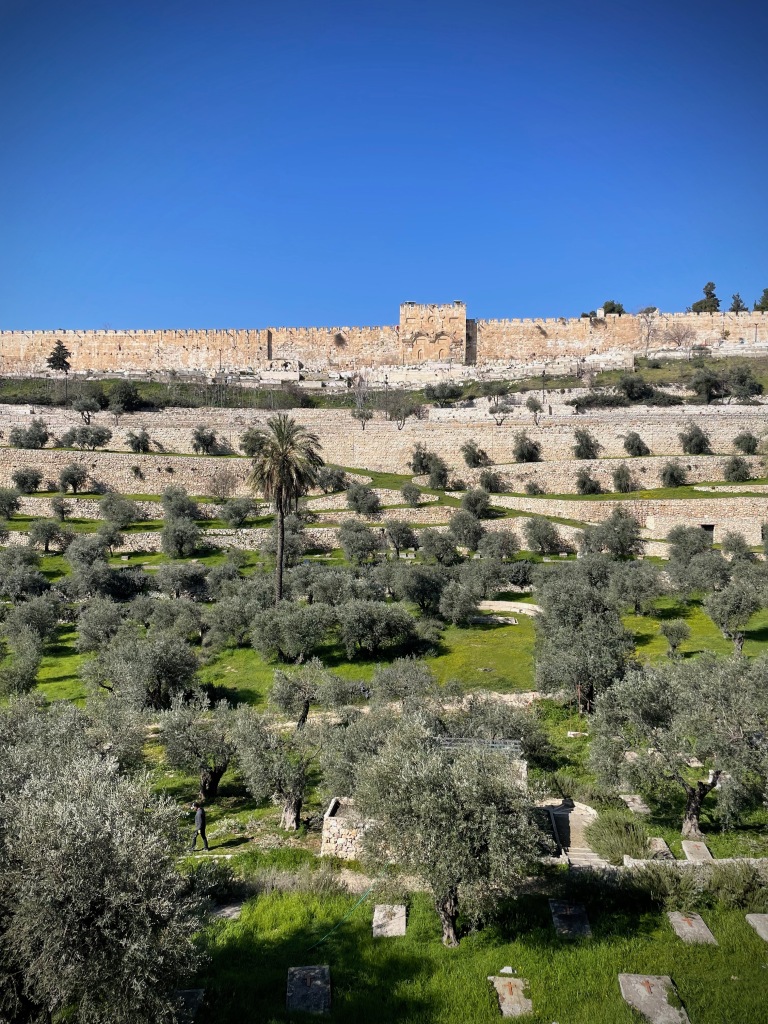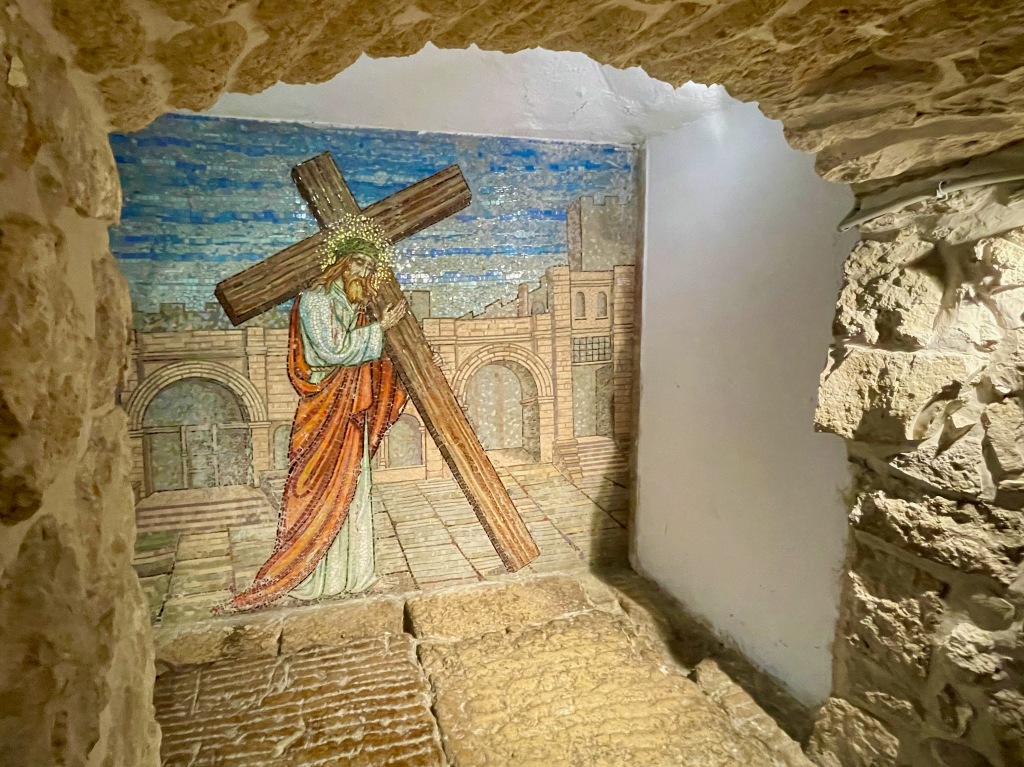The Privileged Life: Wave the Palm Branch

“Hosanna! ‘Blessed is He who comes in the name of the Lord!’ The King of Israel!” (John 12:13b)
As Holy Week approaches and we focus on events leading to the death and resurrection of Jesus Christ, it’s easy to cruise on by Palm Sunday in our eagerness to get to Easter.
Sure, we put palm branches in our churches and sometimes even have children parading down the aisle waving the fronds. We’ll sing “Hosanna, Loud Hosanna,” or maybe “The Palms” by Jean-Baptiste Faure. But all too often, Palm Sunday is an overlooked day—much like Thanksgiving when Christmas decorations start flooding the stores.
What really happened that Sunday? And what makes it truly significant in Holy Week?
If you read through the accounts in all four gospels, you’ll notice different perspectives of this grand arrival at Jerusalem. Jesus began making His way westward from Jericho (where He called Zaccheus down from the sycamore tree) and also stayed in Bethany with his dear friends, the siblings Mary, Martha, and Lazarus.
Our Lord and His disciples approached the city on a descent from the Mount of Olives, most likely going across the Brook Kidron and through the Eastern Gate, also called the “Golden Gate” or “Gate of Mercy.” He instructed His followers to bring Him a donkey to ride for the final procession into the city. It was His declaration of royalty—arriving in the manner of King David, as the King of peace coming to His people—as well as His fulfillment of Old Testament prophecy (see Zechariah 9:9).
Word got out quickly about Jesus. His disciples created a ruckus while chanting verses from Psalm 118, “Hosanna! ‘Blessed is He who comes in the name of the Lord!’ The King of Israel!” (John 12:13b) Soon, crowds were hurrying to watch the parade, waving palm branches and laying down their clothing on the pathway…a red-carpet-style party to welcome the celebrity. The atmosphere must have been electrically charged, already a bit chaotic from the hordes of visitors there for the Passover feast.
Jesus would have experienced joy in this triumphal entry along with immense sorrow in knowing this was His last journey, that He would sacrifice His life here to bring salvation to the world. He wept—foreseeing the day when Jerusalem would be destroyed because of unbelief.
But except for the Pharisees plotting to kill Him, Jesus’ disciples and all the other Israelites were clueless. The streets buzzed with conversation about Him, some people asking who He was, others answering that He was a prophet from Nazareth. Few recognized Him as the incarnate God.
Jesus continued to teach in the Temple, instruct His disciples, and share the Passover meal with them in the upper room. Then came Jesus’ prayers in the Garden of Gethsemane, the betrayal by Judas, the inquisition by the priests, the trial before Pontius Pilate, and the cries of “Crucify Him!” from the rabble crowd.
What happened between Palm Sunday and Friday? In only four days, Jesus had gone from hero to villain…or worse, simply a nobody. Why didn’t anyone stick up for Him as He was being grilled before the authorities? Why didn’t people start a protest against those who demanded crucifixion from Pilate? Why didn’t somebody stop the madness?
From our century, we can second-guess the people of Jerusalem. There are several possible reasons things turned out the way they did.
One observation is fear. The religious elite tossed out all their normal procedures and held a kangaroo-court trial at night when no one else would hear something was amiss. By the time Israelites woke up the next morning, Jesus was already in the Roman judicial process under Pontius Pilate, under guard by Roman soldiers.
Ordinary individuals were no match their strength and authority; rebelling against Romans would bring swift death, so it’s no wonder most people there would shrink from defending Jesus. Even Peter recoiled in dread, three times denying he knew Him. Plus, the most vocal of His opponents were probably planted in the crowd at Pilate’s courtyard, to create a mob situation difficult to overcome.
I think a stronger reaction, however, is disappointment. Here came Jesus, the King everyone had awaited to rescue Israel from the dreaded Roman imperialists. He was their Hope, their Conqueror, their Knight in Shining Armor. By Friday, He is a has-been, and those who had waved the palms now tossed them aside.
That word “Hosanna”? It means “Save us,” a reference to Psalm 118.1 It was a cry for help. But Jesus hadn’t answered their prayer. He had crushed their dreams, and now they were too disillusioned to defend Him.
The main reason, however, is this: God is sovereign, and this was His plan all along. Nothing any of us earthlings could have done would have changed the outcome—or His love for us. Jesus knew His Father’s will, knew He would have to suffer and die as the spotless Lamb for the sins of the world.
Friend, are you too fearful at the moment to acknowledge Jesus as your King? Are you too disappointed in Him to believe His promises? Are you unwilling to accept that God has better plans for you than you’ve expected?
There will come a time when we will understand how God is working for us, even as He revealed His victory on Easter morning. Another time of palm-waving is coming. In Revelation 7:9-10, the apostle John sees a great multitude in heaven carrying palm branches in their hands and standing before God’s throne. Robed in white, they will cry out, “Salvation belongs to our God who sits on the throne, and to the Lamb!”
Palm Sunday needs to be a time of such praise for Christ and reflection for all of us. Until we’re courageous enough to speak out as His witnesses, to be content with the mission He has given us, and to be willing to accept His plans, we will continue to shrink away from loving Him as He has loved us. I speak for myself—fear, disillusionment, and self-will have haunted me in my own walk with Jesus.
Together, let’s pause on Palm Sunday to rededicate our hearts to the One who deserves honor and praise as our King. Let’s welcome Him into our homes and remain steadfast in our faith. Let’s wave the palm branches and receive His presence with joy. May God bless us all as we follow His parade.
Jesus, You deserve all glory and honor in our daily walk with You. Have mercy upon us for our weakness in lack of faith, trust, and confidence in Your plans. You loved us enough to suffer the humiliation, agony, and death on a horrible cross. Renew our hope and love for You. Rescue us from all unrighteousness and defeat. You are more than Conqueror…You are our King. In Your holy name, Amen.







1https://www.biblestudytools.com/bible-study/topical-studies/what-does-hosanna-mean.html
#palmsunday #easterngate #hosanna #holylands #israel #pilgrimage #journey #jerusalem
© Copyright 2023 Nancy C. Williams, Lightbourne Creative (text and photography)
Scripture taken from the New King James Version®. Copyright © 1982 by Thomas Nelson. Used by permission. All rights reserved.
To learn more about the grace of Jesus Christ, go to this page: https://lightbournecreative.com/good-news-for-you/













